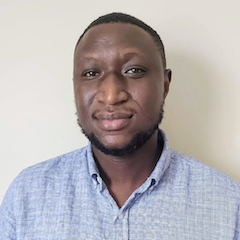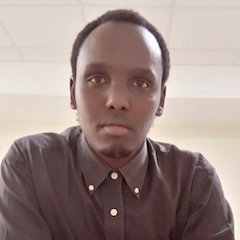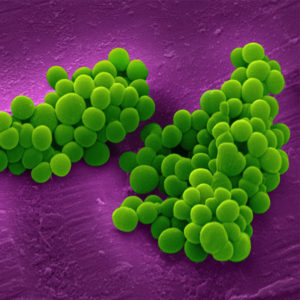Antimicrobial Resistance in Bacterial Pathogens - Africa
9–16 March 2024
National Institute for Communicable Diseases (NICD) - South Africa
Learn antimicrobial susceptibility testing techniques and how whole-genome sequencing and bioinformatics can be used to understand AMR
Summary
In collaboration with the National Institute for Communicable Diseases (NICD), South Africa, we are pleased to announce the 2024 Global Training course in Antimicrobial Resistance of Bacterial Pathogens.
Antimicrobial resistance (AMR) is a global public health emergency, and threatens the safe delivery of modern medical care. A recent study estimated that there were 4.95 million deaths associated with AMR bacterial infections in 2019. Global projections of the negative impact of AMR predict the loss of nearly 10 million lives per year, and a cumulative loss of global production up to 100 trillion US dollars by 2050. AMR requires immediate, concerted, international, collaborative action to monitor its prevalence and spread throughout the world. The importance of this has been recognised both by the United Nations, and by the World Health Organisation; the latter has published a list of priority pathogens and a global strategy for AMR surveillance.
The challenges of controlling AMR in low- and middle-income countries may be considerable for a number of reasons. Firstly, antibiotics may be available for human and animal use without prescription, resulting in overuse or misuse. Secondly, accurate data on antimicrobial prescription or consumption may not be readily available. Thirdly, there may be limited knowledge about appropriate use of antibiotics and a lack of antimicrobial policies or stewardship programmes. Finally, there may be limitations in healthcare facilities and laboratory capacity for the detection and management of AMR.
The aim of this course is to address some of these challenges by improving the knowledge and skills of individuals interested in antimicrobial resistance in bacterial pathogens in Africa. It will provide a basic introduction to AMR, and practical laboratory training in the laboratory aspects of AMR detection (phenotypic and molecular testing) in bacteria. It will also provide theoretical training on the evolution and spread of AMR and explore the use of whole-genome sequencing and bioinformatics analysis and methods for AMR surveillance and control. The content will be globally relevant but tailored to an African setting, and therefore potentially transferable to other LMICs. It will result in training and capacity building of the participants who will be able to transfer their knowledge and skills within their home own institutions and countries. The course will provide an opportunity for participants to network and potentially build a regional AMR network to support longer-term partnerships and collaborations.
Target audience
This week-long course is free to attend and open to applicants based in Africa who are actively engaged in, or soon to commence related research or work. This may include diagnostic stewardship, antimicrobial stewardship,infection prevention and control, or generate policies related to AMR in bacteria. Applicants should be PhD students, clinical trainees or specialists in medical microbiology or bioinformatics, postdoctoral scientists, senior technicians, or research assistants with a Master’s degree.
Programme
Programme
The course will be made up of lectures and laboratory and computational practicals. Participants will learn international standard methods for the detection of antimicrobial resistance in bacteria. Participants will also complete computational practicals covering the investigation, tracking and understanding AMR in bacteria.
Topics will include:
- Epidemiology of AMR pathogens and national surveillance programmes
- Clinical importance of AMR
- Causes and biological mechanisms of resistance in Gram-positive and Gram-negative bacteria
- Antimicrobial susceptibility testing (AST) methods e.g. disc testing, automated systems, minimum inhibitory concentration (MIC), breakpoints and reporting, QC/QA
- Antibiotic policies and stewardship
- Tackling AMR using a One Health Approach
- Whole genome sequencing (WGS)
- Web-based and command line tools for pathogen genomics analysis
- Genomic surveillance of AMR
Learning outcomes
After attending this course, participants will be able to
- Carry out standard laboratory methods for antimicrobial susceptibility testing (e.g. disk testing and MIC determination)
- Describe the principles and practice of quality assurance and control in AMR surveillance techniques, antimicrobial susceptibility testing and reporting.
- Discuss the range of control strategies for AMR in human and veterinary medicine (e.g. antimicrobial stewardship, infection control and policies).
- Use appropriate software tools to analyse WGS data for assembly of bacterial genomes, detect resistant variants and conduct phylogenetic analysis.
- Analyse and interpret genomics data for AMR surveillance.
Instructors and speakers
Scientific Organising Committee

Ewan Harrison
Wellcome Sanger Institute, UK

Sabelle Jallow
NICD, South Africa

Stanford Kwenda
NICD, South Africa
Instructors & Teaching Assistants

Beth Blane
University of Cambridge, UK

Collins Kigen
KEMRI, Kenya

Fahad Khokhar
University of Cambridge, UK

Francesc Coll
London School of Hygiene & Tropical Medicine, UK

Lillian Musila
KEMRI, Kenya

Narender Kumar
Wellcome Sanger Institute, UK
Organisers - Wellcome Connecting Science
Registration and bursaries
Prerequisites
Applicants should be PhD students, clinical trainees or specialists in medical microbiology or bioinformatics, postdoctoral scientists, senior technicians, or research assistants with a Master’s degree. Applicants should be based in Africa and be actively engaged in, or soon to commence, research, clinical practice, provision of clinical services or policy development related to AMR in bacteria.
Laboratory experience: The laboratory practical sessions will require basic microbiological and laboratory skills. Ideally participants are required to have some previous exposure to basic microbiological and laboratory techniques. This will be essential for participants to fully benefit from the course.
Computer Proficiency: While no formal bioinformatics training is necessary, participants must complete two mandatory online courses before starting the AMR course to enhance their learning experience. These courses, ‘Plotting R for Biologists’ and ‘Introduction to Linux for Biologists,’ will be offered free of charge and are designed to equip participants with essential skills on Linux and R.
The course will be taught in English.
How to Apply
Please click the Apply button above to begin the online application process. Places are limited and will be awarded on merit. If you have any problems with the online application process, please contact us. The deadline is at 23:59 GMT.
Please note: Applications must be supported by a recommendation from a scientific or clinical sponsor (e.g. supervisor, line manager or head of department). A request for a supporting statement will be sent to your nominated sponsor automatically during the application process. Applicants must ensure that their sponsor provides this supporting statement by the application deadline. Applications without a supporting statement cannot be considered.
Cost
The course is funded by Wellcome Connecting Science and is free to attend.
Bursaries
Bursaries are offered based on merit to assist with travel, accommodation, and living expenses during the course. To apply, please complete the “bursary” section on the course application form. Recipients will typically be informed of their award in conjunction with their course acceptance. Please keep in mind that both the applicant and sponsor must provide a justification for the bursary as part of the application process.
Accommodation services phishing scam – please be vigilant. More information.






